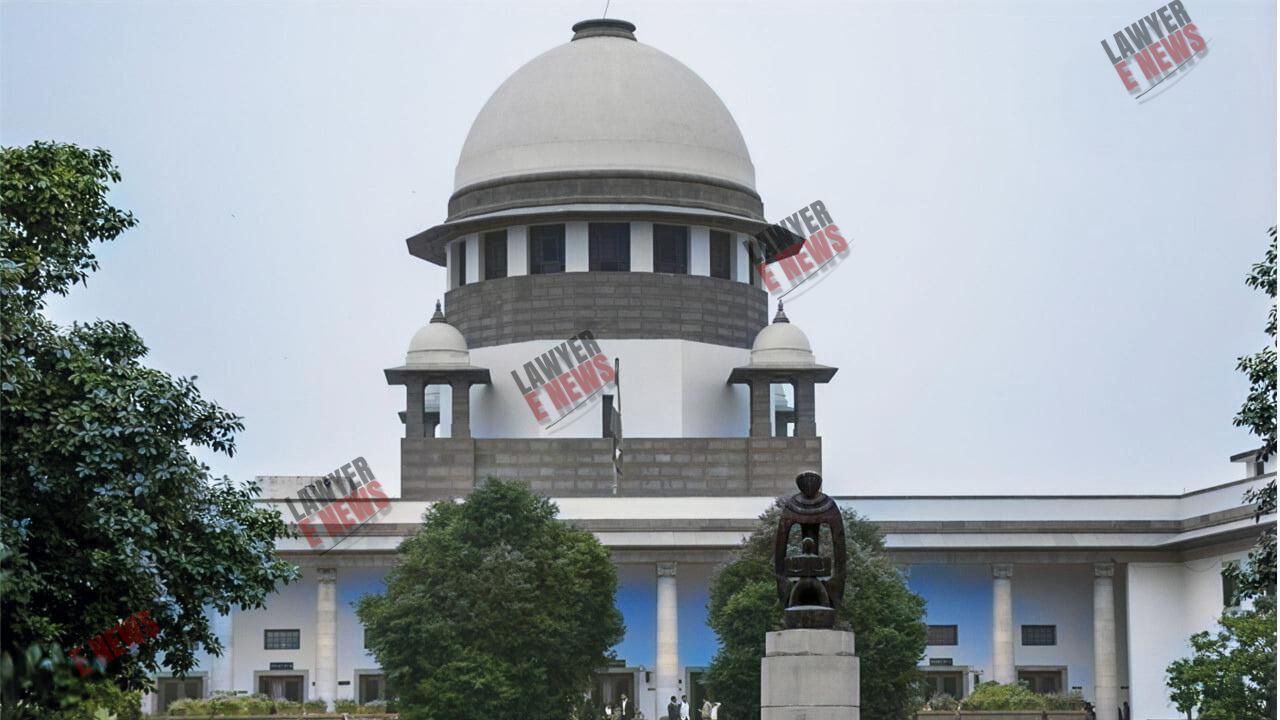-
by Admin
16 February 2026 1:47 PM



Delivering the judgment in Sunita & Ors. v. Vinod Singh & Ors., a bench comprising Justice Sudhanshu Dhulia and Justice Ahsanuddin Amanullah enhanced the compensation amount from ₹5,96,761 to ₹13,82,500 with 7.5% interest per annum from the date of filing of the claim petition.
The Court observed, "Motor accident compensation is meant to provide financial security to the dependents of the deceased. The High Court erred in not considering future prospects and in undervaluing the loss suffered by the family. A just and reasonable approach must be followed."
The case arose from a tragic accident on February 7, 2003, when Smt. Tarawati was fatally hit by a truck while walking to the bus stand in Village Sanjarwas Phogat, Haryana. Her family filed a claim petition under the Motor Vehicles Act, 1988, seeking ₹15 lakhs in compensation.
The Motor Accident Claims Tribunal (MACT), Bhiwani, awarded ₹4,31,680 with 7% interest per annum, considering her notional monthly income and applying an 8-multiplier. Dissatisfied with the low compensation, the family appealed to the Punjab & Haryana High Court, which increased the amount to ₹5,96,761 and enhanced interest to 7.5% per annum. However, the family further challenged the ruling before the Supreme Court, arguing that the High Court failed to apply the correct multiplier and did not consider future prospects.
The Supreme Court found that the High Court had underestimated the monthly income of the deceased and incorrectly applied a lower multiplier.
Addressing the issue of future prospects and loss of consortium, the Court ruled that the deceased’s monthly income should be ₹7,000 instead of ₹5,819, as both family pension and notional homemaker wages had to be included. The Court applied a 14-multiplier instead of 9, considering the deceased’s age of 45 years as per the post-mortem report.
Citing National Insurance Co. Ltd. v. Pranay Sethi (2017) 16 SCC 680, the Court ruled that future prospects at 25% must be added to the income calculation, thereby increasing the total dependency loss.
The Court also increased compensation under the "loss of love and affection" head to ₹2,40,000, applying the principles from Magma General Insurance Co. Ltd. v. Nanu Ram (2018) 18 SCC 130, which recognized spousal, parental, and filial consortium.
Reversing the High Court’s award, the Supreme Court enhanced the total compensation to ₹13,82,500, breaking it down as follows:
Loss of dependency: ₹11,02,500
Loss of love and affection: ₹2,40,000
Loss of estate: ₹20,000
Funeral and transportation expenses: ₹20,000
The Court maintained the 7.5% interest rate per annum from the date of filing of the claim petition and directed the insurer, New India Assurance Company Ltd., to pay the enhanced amount within two months.
Justice Amanullah, delivering the concluding remarks, stated, "The Motor Vehicles Act is a welfare legislation aimed at securing just compensation. Courts must ensure that dependents are adequately compensated for their loss, following legal principles established in past judgments."
The Supreme Court’s ruling in Sunita & Ors. v. Vinod Singh & Ors. reinforces the legal principle that compensation must be realistic, just, and account for future financial loss. By correcting the multiplier application, considering future prospects, and enhancing loss of consortium benefits, the Court has provided much-needed financial relief to the deceased’s family.
With this judgment, the Supreme Court has set a precedent ensuring that motor accident victims’ families receive fair compensation based on proper legal calculations, preventing arbitrary reductions by lower courts.
Date of decision: 19/03/2025
